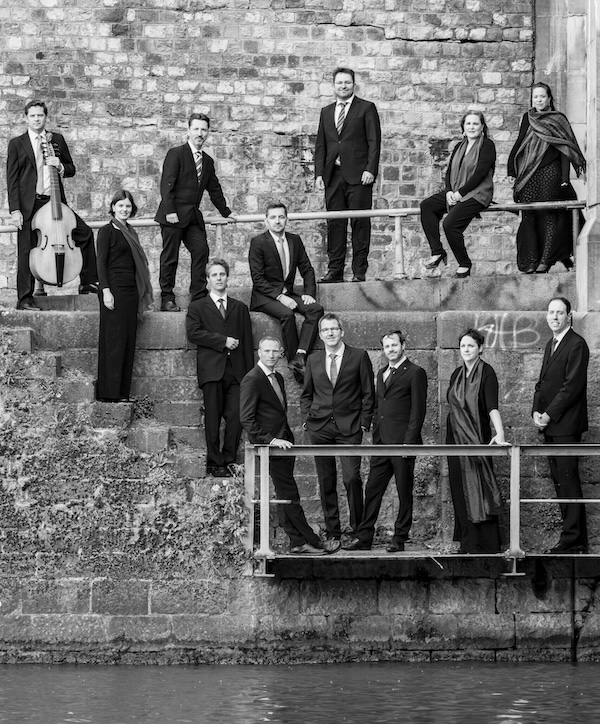Vox Luminis offers a moving experience with German requiem collage
“Now, you will have no encore. Once you’re dead …”—director and bass singer Lionel Meunier smiled and shrugged.
Vox Luminis, his vocal/instrumental ensemble had just performed a program titled “A German Baroque Requiem” for Music Before 1800 at Corpus Christi Church Sunday afternoon. The last section, “Selig sind die Toten” (“Blessed are the dead”), tied off the loveliness of this afternoon of music with a real sense of finality; death pondered, the dead and God honored, the listeners applauding passionately.
The concert program, which can also be heard on the group’s 2023 CD Ein Deutsches Barockrequiem, has an historical and academic backstory. Meunier and musicologist Jérôme Lejeune connected Brahms’ Ein deutsches Requiem and Heinrich Schütz’s Musicalische Exequien as two spiritual but non-liturgical works, channeled through a Vox Luminis recording of German Baroque music for the Luther Year in 2017. Starting with those composers, the two men combed through textual and compositional material to find music from the German Baroque that set the same sources that Brahms used in his requiem.
The result is a requiem assembled with pieces from nine different composers (with multiple pieces from Johann Hermann Schein and Andreas Hammerschmidt) spanning the middle 17th to early 18th centuries. Despite the quilted nature, the pieces are so well chosen that the performance flowed with a real sense of integration—though individual compositional styles stood out through their use of harmonies, there were commonalities between all the pieces. Some were technical, such as the use of canons and general motet forms, but strongest was that special warm, glowing spiritual sense, the humanity and empathy, that not only united each component but set this is as a real companion to Brahms.
This was deeply satisfying and quite remarkable. One had not imagined that anything other than the original itself could capture that delicate balance of grief, solace, and earthy companionship, and be clearly Christian without the weight of liturgy. With the slender sound of the ensemble’s strings and the chamber-sized chorus, this felt like a combination of memorial service and wake, something close to friends and acquaintances performing for the memory of someone all in the audience knew.
Except the polish and musicality of Vox Luminis were of the highest level. Individual voices had the clarity and color to pick them out of the ensemble while the blend among them was finely balanced. The thoughtfulness and musicality were most impressive. It may seem like an obvious thing to follow a scheme of crescendoes and decrescendos, but it is for more meaningful and powerful to hear the performance rise and fall with the shape of the music with a naturalness that is close to breathing.
After all, that was both the technical and expressive purpose, to build and communicate with intimacy and then emotional power. After a subdued set of introductory pieces, the performance opened up with Christian Geist’s substantial “Die mit Tränen säen” (“Those who sow in tears”), which juxtaposes sorrow of death with solace of the afterlife. The fourth of the dozen works, it shifted the experience from something enjoyed, but observed, to one more immersive. One began to anticipate and relish each resonant vocal harmony, the appearance of unexpected modulations.
The canons and counterpoint of Heinrich Schwemmer’s “Der Gerechten Seelen” (“The souls of the righteous”) and Schein’s “Wie lieblich sind deine Wohnungen” (“How lovely are your dwellings”) were elegantly written and suavely sung. The penultimate piece, Hammerschmidt’s anthemic “Der Tod its verschlungen in den Sieg” (“Death has been swallowed up”) musically and textually poised the performance for the beautiful, peaceful finale. The dead were gone, including Schütz and Brahms, yet the music lived on.
The Gesualdo Six and Abendmusik perform a staged version of William Byrd’s Mass for Five Voices, 6 and 9 p.m., November 9, at the Cathedral of St. John the Divine. mb1800.org
